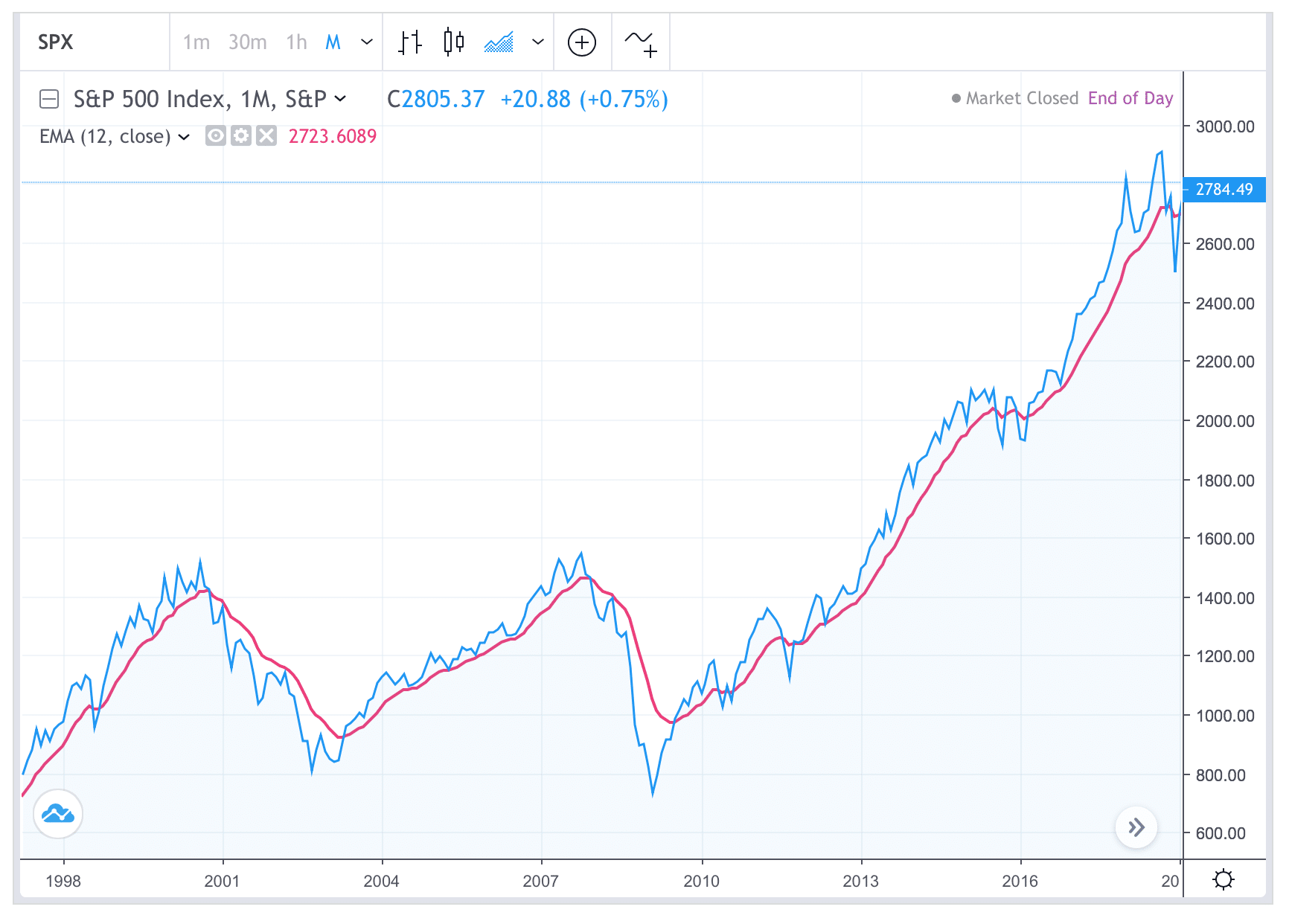Why You Should Prepare Your Portfolio for a Recession
One important signal coming from the global market last week (Mar-2019) was the inversion of the yield curve. This means the borrowing costs for a long-maturity bond, e.g., ten-year gov bond, is lower than that of a 90-day one. Amazing.
The most worrying aspect of an inverted curve is this. “Yield curve inversions,” wrote the Federal Reserve Bank of Cleveland recently, “have preceded each of the last seven recessions.” You can not ask for a better economic predictor.
When a recession hits, stock markets are mostly going to fall (due to a contraction in corporate profits). Readers need not to be reminded that the current equity bull market is ten years old and counting….
Where Can You Short The Market?
By using ETFs, CFDs, spread betting or options you can short the market with these brokers:
Why You Should Learn to Short Equity Markets
Equity bulls argue that the inverted yield curve is nothing to be afraid of. Markets will rebound eventually. But if you can avoid big market drawdowns, your investment returns will be so much better over the long run.
Look at the S&P 500 Index over the past two decades. Yes, the blue-chip index has been advancing since 2000. But you were able to avoid the two big bear markets in 2002 and 2008, you would outperform the index. And if you were short this index during these two bear markets, your portfolio outperformance would be significantly higher.

The question is, how should you go about shorting the stock market? Some popular ways to do it, including:
- Index Futures. Because futures is designed to trade both ways, selling futures based on some popular equity indices (e.g. FTSE 100, S&P 500) is simple.
- Options. such as buying put options (which is agreement to sell an asset for a price sometime in the future).
- Short Selling. Borrow shares from owners and then sell these shares in the market. When you close the trade, you need to buy the shares back at the prevailing market prices. In the UK, some of the most shorted stocks are Debenhams, Marks & Spencer (LON:MKS), etc
What are the risks of short selling the market?
Of all the risks associated with short selling, market risk is the greatest. Most of the above financial products are leveraged, meaning short sellers’ equity would be brutally exposed if prices rally. Remember those fund managers who were short Nasdaq in 1998? They experienced very painful drawdowns as the bubble got bigger and bigger.
So the pertinent question is when should one sell for the lowest market risk? If you wish to avoid those costly drawdown, wait after the peak is made. Try to short instruments on the way down, ie, near/at 52-week lows.
Last week, I pointed out the benefits of buying stocks at all-time highs. Selling instruments at all-time/52-week lows is the same strategy, but in reverse.
For example, look at NMC’s chart. Prices went up year after year. Shorting the stock would be very costly. However prices recently hit a 52-week low – and has been haemorrhaging strength since (see below). In sum, shorting a former market darling on 52-week lows could be one strategy.

Like all other financial strategies, once a short trade is initiated, stoploss is a must, particularly as stocks prices can only go to zero but have unlimited upside potential. There must be a cutoff point where you must abandon the trade. If not, you will face equity depletion. Secondly, you should seek safety in numbers. Diversify. Thirdly, you could use some other catalysts to time your short selling activities, such as the expiration of lock-up shares, which is likely to increase the supply and depress share prices. Lastly, you must be prepared – emotionally and financially – in order to reap the rewards of short selling. Plan ahead. Search for weak stocks that are already struggling. Tailor your short selling strategies.

Jackson is a core part of the editorial team at GoodMoneyGuide.com.
With over 15 years industry experience as a financial analyst, he brings a wealth of knowledge and expertise to our content and readers.
Previously Jackson was the director of Stockcube Research as Head of Investors Intelligence. This pivotal role involved providing market timing advice and research to some of the world’s largest institutions and hedge funds.
Jackson brings a huge amount of expertise in areas as diverse as global macroeconomic investment strategy, statistical backtesting, asset allocation, and cross-asset research.
Jackson has a PhD in Finance from Durham University and has authored nearly 200 articles for GoodMoneyGuide.com.

